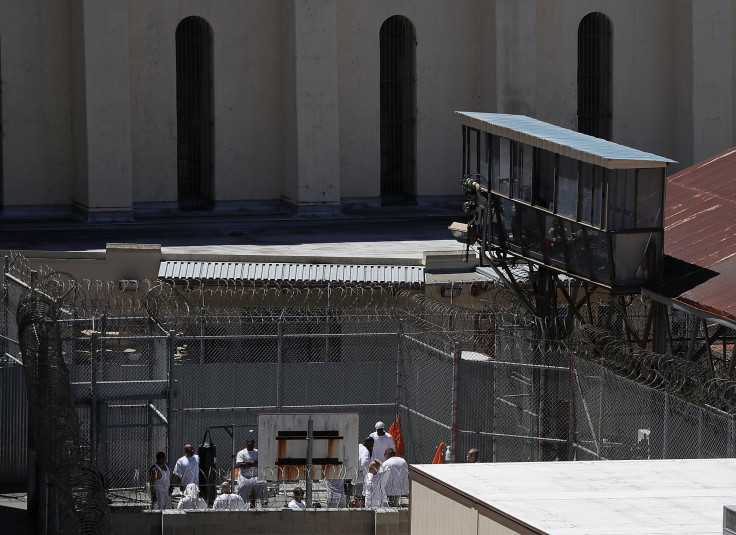Private Prisons: DOJ To End Their Use

The United States Department of Justice announced Thursday a plan for phasing out the use of private prisons to jail federal inmates. Citing a decline in the total number of prisoners, a memo sent by the DOJ to the Federal Bureau of Prisons said contracts with private prisons should either not be renewed or reduced in their scope.
“Private prisons served an important role during a difficult period,” Deputy Attorney General Sally Q. Yates said in the memo, which opened with the mention of federal prison population increasing by almost 800 percent in the 33 years between 1980 and 2013. Starting in about 2005, the Bureau of Prisons “began contracting with privately operated correctional facilities,” and by 2013, they housed 30,000 inmates — about 15 percent of federal prisoners.
Since 2013, however, federal prison populations in the U.S. have declined, in large part due to changes in sentencing policy and the ongoing clemency initiative of the Obama administration. The current number of inmates stands at about 195,000, down from the peak of 220,000 three years ago.
And that allows the DOJ to reduce its reliance on private prisons, especially because “time has shown that they compare poorly to our own Bureau facilities. They simply do not provide the same level of correctional services, programs, and resources; they do not save substantially on costs; and as noted in a recent report by the Department’s Office of lnspector General, they do not maintain the same level of safety and security.”
Yates said “all of the Bureau's existing contracts with private prison companies are term-limited and subject to renewal or termination. I am directing that, as each contract reaches the end of its term, the Bureau should either decline to renew that contract or substantially reduce its scope in a manner consistent with law and the overall decline of the Bureau's inmate population.”
The actions proposed by Yates will bring down the number of inmates in private prisons to 14,200 by May 2017, she said. In a statement on the DOJ website, she called Thursday’s directives “the first step in the process of reducing — and ultimately ending — our use of privately operated prisons.”
The Bureau of Prisons also contracts private companies for operation of hundreds of “halfway houses” across the U.S., which “provide short-term transitional housing and community-based reentry services such as employment assistance” to former inmates, and such facilities are not covered by Thursday’s directive.
The memo is only for federal prisons, and does not apply to state prisons — which include private facilities — which house the majority of those incarcerated in the U.S.
Democratic Sen. Bernie Sanders was quick to respond to the move.
The DOJ's plan to end its use of private prisons is an important step in the right direction. It's exactly what our movement has fought for.
— Bernie Sanders (@BernieSanders) August 18, 2016
Reacting to the news, David Fathi, director of the American Civil Liberties Union’s National Prison Project, said: “The ACLU applauds today’s decision and calls on other agencies — both state and federal — to stop handing control of prisons to for-profit companies.”
And on Thursday, soon after the DOJ announcement, stocks of prison companies fell sharply. Corrections Corporation of America fell by 35.45 percent on the New York Stock Exchange, even though it recovered 6.32 percent in after-hours trade. The GEO Group Inc., meanwhile, saw its stock price fall by 39.58 percent on the NYSE, before recovering 3.79 percent in after-hours trade.
© Copyright IBTimes 2024. All rights reserved.





















